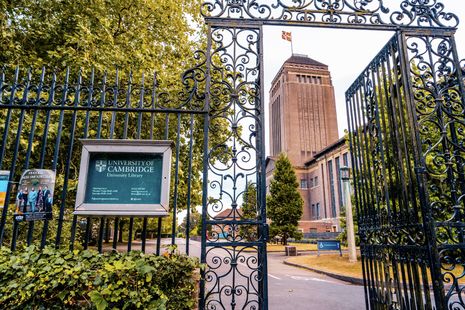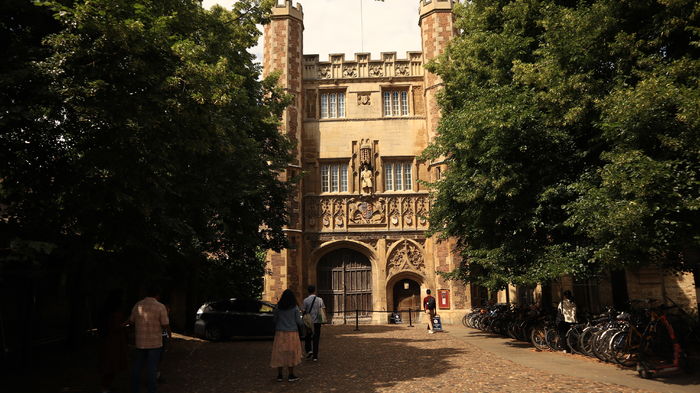Who could possibly want more exams?
Remy Rushbrooke proposes a paradoxical solution for Cambridge’s ‘culture of overwork’

Well, me, and here’s why. Michaelmas term draws in and I feel a rather too reassuring academic complacency at the prospect of an examless winter season. It’s the fluffiest term: it tends to glide seductively through long evenings and fresh faces - puffers and Guinnesses – leading merrily on, to Christmas if you’re a Christian, New Years’ Eve if you’re a hedonist, and Varsity skiing if you’re extra middle class. The academic agenda? Indolent and indulgent instincts tell me there’s no need to be ‘on top of’ my work, but merely in and around it. However, I want to do well, and when push comes to shove I’ll no doubt try to recover the corners I’ve cut. Without wishing to diagnose my peers by my own symptoms, I suspect many of us have similar tendencies. I also suspect that the long, expectant Lent term crawl, and the tense Easter, where socialising is death and cramming is rife, contribute hugely to our university’s ‘culture of overwork’ sentiment.
So I protest – and at this you may groan – that it is only logical for British universities, particularly Cambridge University where academic rigour is forefront, to give greater weight to continuous assessment. That is to say, give us more exams, more coursework opportunities, and take the edge off end-of-years. It’s not a matter of sadism nor self-punishment: I honestly believe there are plenty of people like me, whose genuine interest in their area of study is just narrowly trumped by procrastination, who feel unmotivated in Michaelmas, impending doom in Lent, and insurmountable stress when the things actually roll around in Easter Term.
“The long, expectant Lent term crawl, and the tense Easter, where socialising is death and cramming is rife, contribute hugely to our university’s “culture of overwork” sentiment”
I hastily add that I make no claim to victimhood. Naturally these are self-fulfilling cycles, and I’m certain there are many who have no trouble keeping contact with a high level of academic rigour year-round. In an ideal world, our desire to work at our degrees should be in line with our desire to self-express, and love of the subject – and yet it’s a well-attested psychological principle that imposing constraints, deadlines, and assessments is at the very least a good way to maximise productivity. It’s also worth noting the numerous studies which directly corroborate that continuous assessment is a better driver of academic performance than final exams. It’s the same intuition which makes me limit my screen time, or drain my bank account to budget properly, that draws me to the idea of termly exams, regular coursework projects, and graded group work – these measures which sometimes feature in the Cambridge curriculum but, in my opinion, all too little.
“I haven’t yet covered half the problems with the current final exam system”
I haven’t yet covered half the problems with the current final exam system. In fact, my only outright grievance with Cambridge’s approach to assessment is the pathetic feedback doll-out. Come results day, the crude set of numbers which is laid at our digital door hardly comes with a bed of support and reasoning: to receive any kind of written notes, students must pester unresponsive faculty officers, and if they do come they are brief and inherently impersonal. The only form of contact worked into the post-exam period is a DOS meeting, and it seems a shame to miss out entirely on the opportunity to communicate with the experts setting the questions, to work out where you have or haven’t missed the mark. This process, of condensing a year’s work into one small table of marks, has made me feel both of the following: deflation, at scoring lower than I thought I might have, and not really knowing why, and a strange guilt, at scoring higher than I feel I deserved, perhaps owing to a toxic breed of last-minute revision. Is it some element of pretence by which the university insists on a recondite and randomising grading system, where 240 minutes is worth 24 weeks? Would we not all prefer to, as it were, know where we stand?
I rest my case. I look forward to a day where British Universities adopt a GPA-style grading system, one which is familiar to the US, Japan, South Korea, Australia, and many other countries around the world, and lends itself to a more constant workload. I’m fed up with final exams, all for continuous assessment – a student life which my friends at the University of Pennsylvania and Princeton assure me is more forgiving, less stressful, and more conducive to academic rigour.
 News / Judge Business School advisor resigns over Epstein and Andrew links18 February 2026
News / Judge Business School advisor resigns over Epstein and Andrew links18 February 2026 News / Hundreds of Cambridge academics demand vote on fate of vet course20 February 2026
News / Hundreds of Cambridge academics demand vote on fate of vet course20 February 2026 News / Petition demands University reverse decision on vegan menu20 February 2026
News / Petition demands University reverse decision on vegan menu20 February 2026 News / CUCA members attend Reform rally in London20 February 2026
News / CUCA members attend Reform rally in London20 February 2026 News / Caius students fail to pass Pride flag proposal20 February 2026
News / Caius students fail to pass Pride flag proposal20 February 2026










